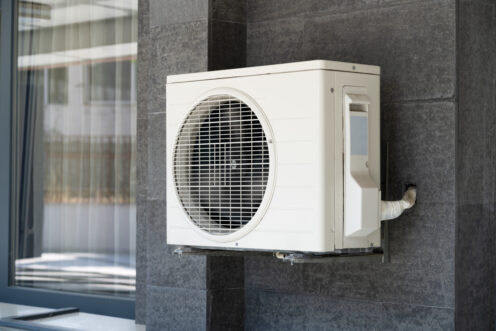6 Ways to Optimize the Efficiency of Your Heat Pump This Winter Season

Heat pumps provide reliable, year-round temperature control and outstanding performance in summer. In the right conditions, these dual-functioning systems offer unmatched efficiency. However, with winter temperatures in Windsor, ON often falling below freezing, your heat pump needs extra support. The following are six ways to optimize your heat pump’s performance for manageable energy bills.
1. Schedule Professional Tune-up Service
Air conditioners, furnaces, and boilers need professional maintenance just once each year. Heat pumps require tune-ups twice annually. If you had your heat pump serviced in spring to prepare for the cooling season, you should have serviced again in fall.
During heat pump maintenance, we’ll clean all interior and exterior components, lubricate moving parts, check refrigerant levels, and seal off air duct leaks. We’ll also replace worn and damaged components, calibrate your thermostat, and more.
Caring for Your HVAC Air Ducts Is Important Too
Heavy accumulations of debris in your HVAC ducting and at your air registers, vents, or grilles will diminish your heat pump’s efficiency. You should have these features cleaned every two to three years. If you haven’t done so already, have your HVAC air ducts sealed and insulated as well.
2. Establish the Right Schedule for Air Filter Changes
Most HVAC equipment manufacturers recommend changing air filters every one to three months. However, you should inspect your air filter every 30 days. You can tell when a heat pump filter is ready for replacement by holding it up to the overhead light. When light can no longer pass through a filter’s mesh, built-up debris is too heavy to permit the movement of air.
Keeping a fresh filter in will limit the amount of energy that your heat pump uses to heat your home. It will also reduce system stress, improve your indoor air quality, and help you avoid many common, filter-related problems like icing, overheating, and short cycling.
3. Maintain Adequate Clearance Around the Outdoor Condenser
Heat pump condensers should have 24 inches or about 0.6 meters of clearance on all sides. When changing your heat pump’s air filter, step outdoors and remove any leaves, twigs, or other debris that have accumulated around this unit.
Prevent Heavy Snow Loads on Your Heat Pump’s Condenser
Keeping a dormant heat pump condenser covered during winter is ill-advised. You should never cover this component when your heat pump is in use. However, you can install an open, overhead shelter that catches heavy snow loads and deflects roof debris.
4. Tighten Your Home Envelope
Among the best ways to make any heating system more efficient is tightening your home’s envelope. Seal up all air leaks in building materials. Add weatherstripping to your windows and doors, and increase or upgrade your home’s insulation. These measures will prevent warm, indoor air from seeping outside and keep cold, outdoor air from finding a way in.
Keep your windows and doors closed whenever your heat pump is in action. If you have a heat recovery ventilator (HRV), get needs-specific recommendations for wintertime use by asking our technicians.
5. Maintain a Consistent Indoor Temperature
Unlike gas furnaces which rapidly produce and disburse high levels of heat, heat pumps take a while to warm building interiors up, especially when indoor temperatures are exceedingly low. Although lowering your thermostat setting before going to work or bed is an excellent, energy-saving idea for furnaces and boilers, it can cost you money when using a heat pump. Find a comfortable temperature setting and stick with it all winter long. This will shorten the average duration of your heat pump’s heating cycles and limit their frequency.
Use a Smart Thermostat to Manage Temperature Adjustments
If you prefer to adjust your temperature setting when leaving or going to bed, have a smart thermostat manage these changes for you. Smart thermostats eliminate the potential for oversights and errors. They can also send out timely reminders for filter changes and preventative maintenance.
6. Limit Your Use of Emergency Heat Mode and Defrost Mode
Like most homeowners in Windsor who use heat pumps, you likely have a backup furnace or another secondary heat source. Switching to emergency heat mode activates this secondary heating source when outside temperatures fall so low that even high-performance heat pumps struggle. However, in the interests of curbing your home heating costs, you should only use this setting when you need it.
This is also true of defrost mode. If your heat pump keeps icing over in winter, you may need to have a base pan heater installed in its outdoor unit, replace your air filter more often, or schedule heat pump repairs.
Residents of Windsor, ON can count on us for superior heating and cooling services. We also install and maintain heat recovery ventilators (HRVs), whole-house air purifiers, ductless mini-splits, and water heaters. To schedule an appointment, call Guaranteed Comfort Heating & Cooling now.
